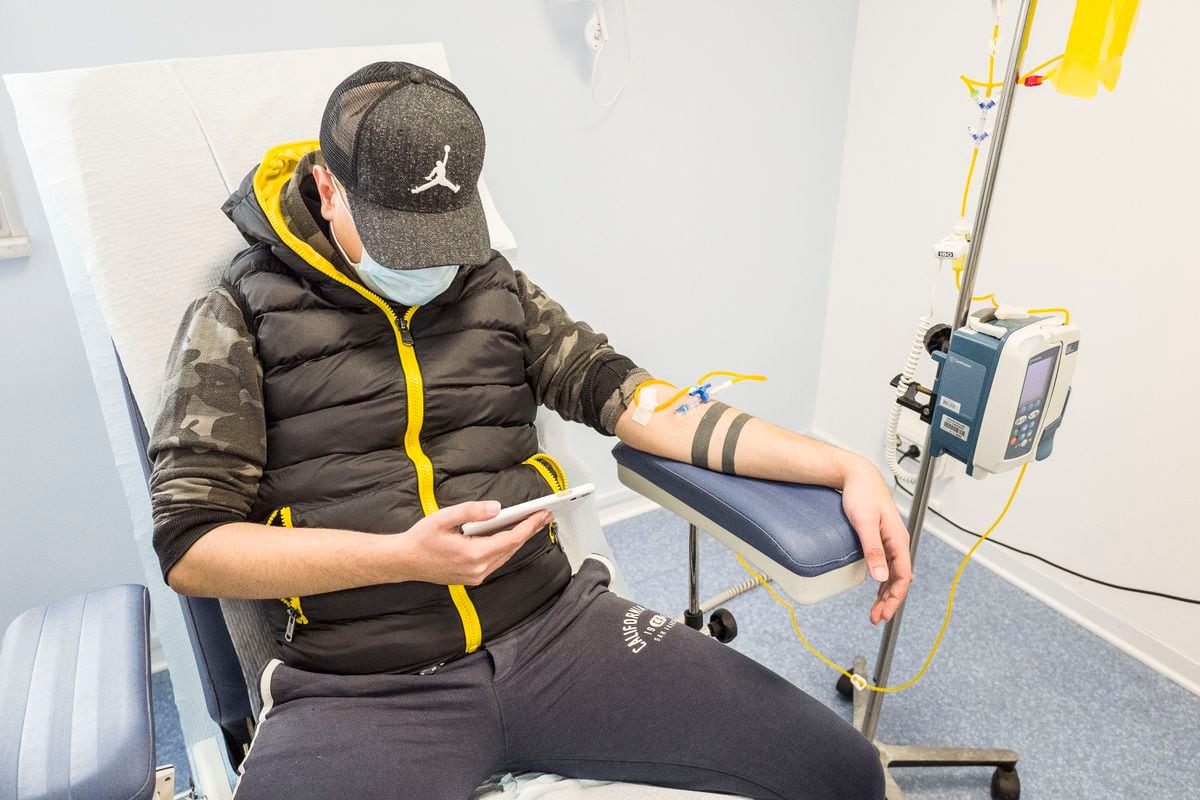Agnostic tumors, precision or personalized medicine.
Those are the terms that are used today to talk about cancer and the new possibilities of treatment.
With agnostic tumors we refer to those in which a
molecular alteration
is identified that makes it possible to treat them
regardless of their location
.
It implies a
paradigm shift
: the focus is no longer on the organ (lung, colon or breast);
Now the key is to detect possible mutations or other types of molecular characteristics in order to
attack them in a targeted manner with specific drugs
.
Matias Chacón, head of Oncology at the Alexander Fleming Institute and former president of the Argentine Society of Clinical Oncology, explains that we came from a
"strictly anatomist" mentality
and did not take into account that there could be common alterations to different tumors that could be addressed with certain drugs.
According to Chacón, we are talking about very recent technologies that exploded with the knowledge, first, of the
sequencing of the human genome
and then of
the cancer genome
.
“The complete sequencing of cancer, with all its genetic alterations, was published in the scientific journal
Nature
in February 2021”, highlights the specialist who clarifies that “further research is needed”.
A colorectal cancer organoid, with the cells responsible for the metastasis marked in red.
Photo: IRB Barcelona
Immunotherapy for tumors that fail to repair DNA errors
The first agnostic therapy, he details, was approved in 2017. “It is an immunotherapy called pembrolizumab for tumors that
do not have the ability to repair genetic errors
.
That is the
biomarker
and it usually occurs in cases of colon and endometrial cancer”, he specifies.
And he says that this biomarker can be searched for from
genomic sequencing
or by
simpler techniques
such as identifying certain proteins in biopsied tissue.
Treatment for NTRK gene fusions
"The next approval had to do with the presence of
fusions of a gene called NTRK
, present in 0.28% of tumors and usually detected in juvenile sarcomas and thyroid tumors," Chacón points out.
Although it is infrequent, he assures that what is relevant is that if it appears it is like
finding a lock for which the key, which is the drug, is already made.
"The drugs used in this case are
larotrectinib and entrectinib
, which were only authorized in Argentina this year," he adds.
Blocking an alteration in the BRAF gene
Another of the agnostic therapies available has to do with the identification of
an alteration in the BRAF gene
and the appearance of drugs that can block the product of this genetic variation.
It was detected years ago in cases of melanoma and now this mutation is being found in other tumors such as colon tumors.
On this last alteration (that of the BRAF gene), the Pfizer laboratory presented a new treatment for
two types of cancer in an advanced stage
.
The new drug is a targeted therapy that, in two different combinations with other personalized medications, has shown benefits in the treatment of
metastatic stage
colorectal cancer
and unresectable or metastatic
melanoma .
This is
encorafenib
, which inhibits the action of a pathway (called
MAPK
), responsible for stimulating the growth and proliferation of tumor cells, always in those cases in which the presence of the
BRAF mutation
is confirmed .
Encorafenib
is administered as second-line therapy for the treatment of metastatic colorectal cancer in combination with
cetuximab
, a monoclonal antibody that attacks the epidermal growth factor receptor (EGFR), a protein that is found to be altered in malignant cells, favoring their growth. and multiplication.
A melanoma on the skin of a patient.
Photo: OpenStax College
The approval granted by the National Administration of Drugs, Food and Medical Technology (ANMAT) for this combination use for the treatment of metastatic colorectal cancer with BRAF V600E mutation was based on the results of the BEACON CRC
clinical study
.
This work demonstrated that from its use a response rate
10 times higher
(20% vs. 2%) was obtained than that achieved with standard medication.
Overall survival was also higher: 8.4 months versus 5.4 months in the control group, and the median progression-free survival achieved was 4.2 months versus 1.5 months.
The approval of the combination of
encorafenib
and another drug called
binimetinib
for the treatment of adult patients with
unresectable or metastatic
melanoma with the BRAF V600 mutation was supported in the
COLUMBUS study
, published in
The Lancet
, a phase 3 trial.
This investigation showed that the new combination obtained a significant improvement in median PFS and overall survival compared to other available drugs, reaching a median PFS of 14.9 months compared to 7.3 months. months of the control group, and a median overall survival of 33.6 months, which doubles the overall survival of the control group.
“There are few agnostic therapies that exist so far.
We are talking about
three or four drugs in total worldwide
, ”confirms Juan Manuel O'Connor, head of the Gastrointestinal Tumors Unit at the Alexander Fleming Institute.
3D structure of a melanoma cell: Photo: Sriram Subramaniam (US National Cancer Institute)
These are
high-cost
therapies
, which up to now have been used to treat tumors in
advanced stages.
Although they are approved by ANMAT, it is not so easy to access them since only some prepaid companies authorize them, according to O'Connor in detail when asked by
Clarín
.
“They have a disease control criterion, not a curative one because they require validation in earlier stages of the disease.
This has to do with it being first tested for advanced disease.
Surely, later on we can verify if it is also effective in the initial stages”, affirms the oncologist.
Regarding the therapy presented by Pfizer, he adds: “The availability of this combination is a clear example of advances in this specific area of patients with metastatic colorectal cancer with the BRAF V600E mutation.
Until now,
we did not have a specific treatment scheme in Argentina for this subtype of tumor
”.
Gabriela Cinat, medical oncologist and head of the Melanoma and Sarcoma Unit at the Ángel H. Roffo Institute of Oncology, assures that agnostic therapies aim to interfere
with certain driver mutations
(that is, those responsible for tumor development) to
control its evolution
.
“What is done is
to outline the tumor to define what drugable alterations we can find
.
This is done through a biopsy, from a tissue sample”, explains Cinet.
Many of the therapies are orally administered, others intravenous.
“The advances made in the treatment of advanced melanoma are very important.
We have managed to control this disease
for years in a growing percentage of cases
, but we know that, for the moment, more than half of the patients will die from this cause," warns the oncologist.
And he remarks: "Having new treatment options that can exceed the efficacy or improve the tolerance of already established treatments is always welcome."
Cinat, who participated in the COLUMBUS study, published in The Lancet, maintains in relation to the development of encorafenib and binimetinib: "This combination has clearly demonstrated its efficacy in this scenario and, although it is not compared head-to-head with the other two previously approved , we could say that their effectiveness is similar".
Meanwhile, he adds that "its toxicity profile would seem to be, in general, more tolerable than the others, especially in terms of flu-like symptoms or skin reactions."
PS
look too
Dengue in Argentina: after the record number of deaths, Carla Vizzotti pointed out that the curve of cases "stopped growing" and "is plateauing"
Vaccine against Covid: the US made a decision with the boys and contradicts the WHO


/cloudfront-eu-central-1.images.arcpublishing.com/prisa/PXTLDZ4PUVFJLM6CHYFPYPWVKI.jpg)






